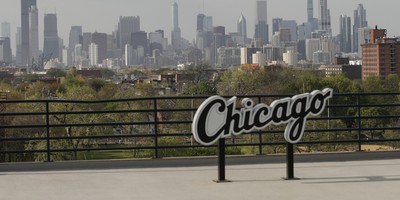There is an agency in Washington, D.C. that is aggressively pursuing a plan to increase union power to the detriment of legitimate management and employee interests including the interests of the our country’s principal job creators, small business. Instead of fairly interpreting and enforcing the National Labor Relations Act (NLRA), the agency is reversing decades of its own precedent. Ignoring its intended role – to be an independent agency of the Executive Branch – the National Labor Relations Board (NLRB) is fulfilling our earlier predictions that it would be nothing more than an extension of Big Labor. We now know what the leaders of the American Federation of Labor and Congress of Industrial Organizations (AFL-CIO) and Service Employees International Union (SEIU), who pushed for the recess-appointment of filibustered labor radical Craig Becker, meant what they said when they stated they were looking forward to working with the new members of the NLRB. Can you imagine the reaction from labor leaders and the news media if business leaders said the same thing?
In the past, the NLRB has been able to work largely unnoticed, out of the limelight. But with the nation’s anemic economic recovery, high unemployment rate, changes on Capitol Hill and the board’s sweeping anti-business agenda, its ability to operate in the shadows has sharply diminished.
Most recently, in a case known as Specialty Healthcare, the NLRB caused widespread alarm in the American business community when it asked for a briefing on whether it should approve very small collective bargaining units – one for every kind of job in an employer’s plant or company. Such a drastic change in existing board law, while it would make initial union organizing easier, would splinter employers’ business operations and harm the long-term interests of employees. Instead of approving larger groups of employees with common interests, such as plant-wide units that are now considered “presumptively appropriate,” the NLRB suggests it may approve a multitude of very small collective bargaining units. For example, a grocery store could find itself divided into bargaining units with a unit for cashiers, one for baggers, one for deli attendants another for the bakery staff and so on.
It is well recognized that such a proliferation of units creates discord, pitting one employee group against another, increasing the likelihood of work stoppages and business slowdowns and making collective bargaining less likely to succeed. And the administrative and legal costs to the employer will increase dramatically. Money will be spent on the employer’s labor relations costs instead of on hiring new workers, expanding service offerings and purchasing new equipment, all of which would make workers and business owners more successful.
Recommended
The percentage of workers in the private sector represented by Big Labor has fallen for the first time to below seven percent. This is because employees are not buying what union bosses are selling: an opportunity to put their employer out of business with inflexible work rules that hobble the employer’s ability to compete, and wages and benefits it cannot afford. This is precisely what took place with the auto companies, which the government bailed out with tens of billions in taxpayer dollars. Today, labor bosses want to give the employees of small businesses the same opportunities they gave the employees of the automobile industry, but government will not be there to bail their employers out. So Big Labor needs this relatively unknown agency within the Federal government to stack the deck in its favor and it appears more than willing to do so.
It is well known that all of this is the brainchild of NLRB recess appointee Craig Becker, a former AFL-CIO and SEIU lawyer. He cannot reasonably be expected to support, much less be able to engage in, a balanced interpretation of the NLRA. Now that he sits on the board with two other union-side labor lawyers, we must be vigilant in holding the NLRB to its mission of protecting worker rights through a balanced interpretation of the act, not a strained interpretation plainly inconsistent with the intent of Congress and focused on perceived interests Big Labor.
Members of the Senate and House have shown that they are becoming increasingly alarmed by some of the NLRB’s recent decisions. The Congress should begin to take whatever actions are necessary to restrain the board and contain the damage.

























Join the conversation as a VIP Member